Property Repair Requirements for FHA and VA Loans
Did you know that some lenders may reject the properties you’re looking at? Special loan programs, such as those offered by the Federal Housing Administration (FHA) and the Veterans Administration (VA), are beneficial to those who qualify, but they come with specific repair requirements.
If dealing with FHA or VA loans, buyers and sellers should be aware of these condition requirements
If you’re looking for an FHA or VA loan, you’ll need to find a home that fulfills the program’s condition requirements—or figure out a method to get the repairs done before the sale—in order to qualify. If you’re a seller, you’ll want to be informed of the loan programs’ repair criteria in case you need to sell to a buyer who has taken out one of these loans.
The rates and improved loan options offered by these loans are made possible because the FHA or VA is backing the loan. They want to ensure the home they help purchase is re-salable in case the borrower defaults on the loan—so they are not going to make exceptions for repairs they consider a necessity. In the end, the repairs must be completed prior to the sale for the loan to be approved.
Who is Responsible for the Repairs?
These loan programs do not stipulate whether the repairs must be made by the buyer or the seller. The buyer will frequently urge that the seller make the repairs—after all, the seller is the owner of the home and should be expected to make repairs to make it usable and appealing to potential buyers. This isn’t always the case, though. Buyers are sometimes compelled to undertake repairs in order to obtain the loan they require and the home they desire.
Some buyers may move from a conventional loan to an FHA or VA loan in the middle of the deal, which sellers should be aware of. If this happens, it’s critical to examine the agreement carefully to see if it still makes sense once all of the loan conditions have been met.
With FHA and VA loans, what is the basis for property condition?
There will be minimum property standards that these government organizations will accept when granting a loan with an FHA or VA loan. The FHA requires that every property financed with one of its loan products meet the following basic standards, according to the US Department of Housing and Urban Development (HUD):
- Safety: The property should protect the health and safety of the residents.
- Security: The house should protect the safety of the property.
- Soundness: The property shouldn’t have any physical deficiencies that affect its structural integrity.
Below is a detailed accounting of the property condition requirements for FHA and VA loans:
FHA Repair Requirements for a Home
- Non-permitted additions – Additions that are not up to code are often flagged in FHA loans, although not always
- Garages that have been built up to provide additional living space may not meet FHA requirements
- Peeling paint that is a lead hazard – Usually on homes built before 1978. Here is a guide on the Federal lead paint law.
- Damaged rain gutters and unpainted downspouts
- Outbuildings that are rotten and in need of demolition
- Malfunctioning exterior doors
- Uncovered junction boxes and exposed wiring
- Major plumbing issues and leaks
- HVAC systems that are not operational
- Major roof issues – including leaking roofs, composition over a shake, defective roofs and roofs that are expected to fail within three years
- Pest infestations that are visible and active
- Porches with rotting support columns
- Missing appliances that one can reasonably expect to be sold with a home, like a cooking range
- Bedrooms that do not meet minimum safety guidelines, including having windows that are too small to exit through or windows with bars that do not release for someone to use the window as an exit. See the complete guide to the definition of a bedroom.
- Foundation defects
- Structural defects
- Basements with water issues, such as leaks or standing water
- Standing water present in the crawl space or evidence that water puddles in the crawl space at times
- Kitchen appliances that are not operational, such as a broken faucet or stove
- Non-operational swimming pools, including pools that are empty, pools that do not have a working pump and pools that have been abandoned and contain standing water
- Window screens with visible rips and tears
- Water heaters that do not have an operational pressure relief valve
- Fencing that is broken, leaning, or otherwise damaged so that it is not functional
VA Repair Requirements for a Home
- Public road access – the home must be accessible from a public road, and the road needs an all-weather surface. Private road access requires an easement
- Walls need to be accessible for maintenance purposes
- The home must be available without needing to go through another home, such as if you had to go through one apartment to reach another apartment
- Yards must be accessible without needing to trespass illegally through the yard or unit of another party
- Damaged paint that could contain lead, which generally means paint on homes built before 1978
- Utilities need to be independent surrounding units, including electricity, natural gas, sewer or septic system and running water
- The home must serve as the buyer’s primary residence, not be used as a rental property
- The house needs to have sufficient heat for safety and comfort. Homes with a wood burning stove as the primary heat source must also include a secondary heating system that is capable of providing heating to make the air 50 degrees and to circulate that air among the plumbing
- Fresh, safe water must be available to the home that is reliable and sanitized
- All areas requiring ventilation for safety must have them, including basements and attics
- The house needs to be comfortably habitable, which means having enough room for the buyer to live, eat, cook and sleep
- Structural defects
- Foundation defects
- Plumbing issues, including severe plumbing leaks
- Rotten wood on the exterior of the home
- Any property impairment that makes the home unsafe or unsanitary
- Drainage issues that cause water to accumulate in the yard, driveway, walkways, etc.
Repairs for Non-Permitted Additions
Health and safety considerations, as well as the structural integrity of the home, are without a doubt the most major repair concerns with government financing.
Work done in a home without a required permit is one of the worries that is at the forefront of the real estate market. If you’re buying or selling a home, it’s critical to understand the implications, whether you’re using a government loan or not.
People who do not have the appropriate building permits are facing stiff penalties in some cities and towns. In other circumstances, they will force you to rip out all of your previous work. Imagine finishing your basement only to be told that everything has to be removed.
Additions and remodels that are not approved are frequently not completed to current building codes. It’s possible that FHA will require these objects to be brought up to code, or they may decide not to include these structures in the property’s value.
Who informs the lender about the home’s condition?
When you buy a house with FHA or VA financing, a certified appraiser will perform an appraisal on the property. Because these are government loans, these appraisers must be approved by the FHA or VA.
As you can see from the above description of condition requirements for VA and FHA lending, the appraiser must adhere to tougher standards.
It is not enough for a property to meet all local construction code and health and safety criteria when applying for an FHA or VA loan. The property condition levels have been raised to a new level. These stringent requirements are in place to safeguard the lender in the event of a failure.
So, while the goal of an appraisal for a conventional loan is primarily to determine the property’s market value, the goal for a government loan is to determine the property’s condition as well.
Final Thoughts
If you plan to use FHA or VA financing to buy or sell a house that isn’t in great condition, it’s critical to understand the implications. Before wasting time and money on a deal that isn’t going to work, it’s critical to get a handle on the situation. Is the seller willing to work with you, either financially or in terms of repairs? Before you become involved in a transaction that isn’t going to succeed, you should know ahead of time.
Prime Choice Funding is here for you. If you are planning to purchase a new home or refinance your existing home, we can help with your homeownership goals, call us at (877) 787-7463 or contact us here.



